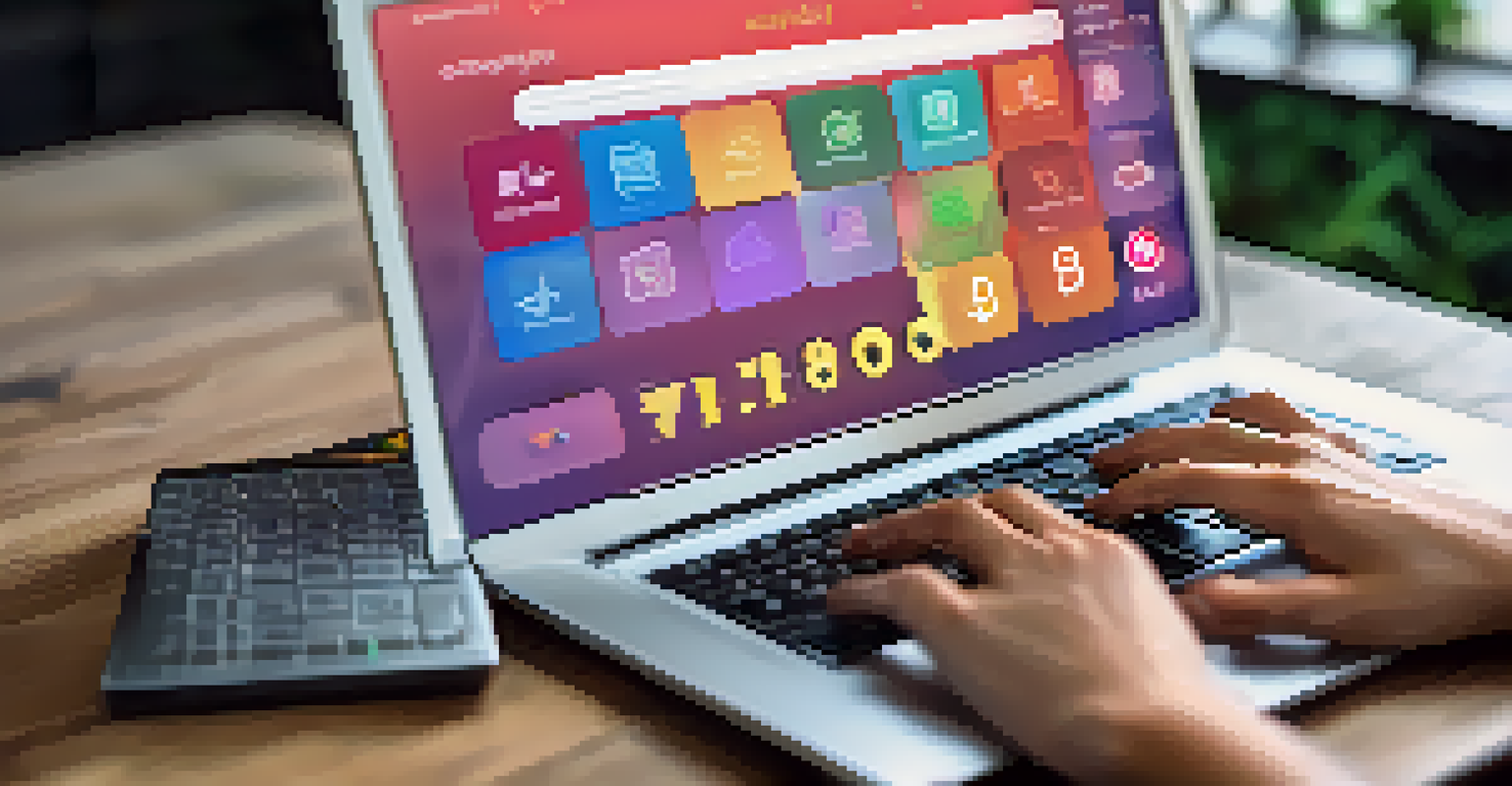Strategies for Protecting Your Privacy While Working Remotely

Understanding the Importance of Remote Work Privacy
In today's digital age, working remotely has become a norm, but with it comes the challenge of maintaining privacy. Many employees may overlook the significance of protecting their personal information while using shared networks or devices. Understanding why privacy matters can help you take proactive steps to secure your data and maintain your peace of mind.
The greatest danger in times of turbulence is not the turbulence; it is to act with yesterday's logic.
When you work from home or a public space, your personal and professional information is vulnerable to various threats, including hacking and data breaches. Just like locking your front door, protecting your digital space is essential in this interconnected world. Knowing the risks is the first step toward safeguarding your information and ensuring a secure work environment.
Moreover, privacy issues can extend beyond just data theft; they can also affect your professional reputation. Imagine a sensitive email being leaked or a private document falling into the wrong hands—this can have lasting repercussions on your career. By prioritizing your privacy, you not only protect your information but also uphold your professional integrity.
Utilizing Strong Passwords and Authentication
One of the most straightforward yet effective ways to protect your privacy is by using strong, unique passwords for your accounts. A strong password typically combines letters, numbers, and special characters, making it difficult for others to guess. Consider using a password manager to help you keep track of your passwords securely.

In addition to strong passwords, enabling two-factor authentication (2FA) adds an extra layer of security. This means that even if someone gets hold of your password, they would still need a second piece of information to access your account. Think of it as having a security guard in addition to a locked door—two barriers are better than one.
Protect Your Digital Privacy
Understanding the importance of privacy helps you take proactive steps to secure your personal and professional information.
Regularly updating your passwords is crucial as well. It's akin to changing the locks on your doors; it helps keep unwanted visitors at bay. By making it a habit to refresh your passwords periodically, you can minimize the risk of unauthorized access and maintain control over your online accounts.
Secure Your Wi-Fi Network at Home
When working remotely, the security of your Wi-Fi network is paramount. An unsecured network can be an open invitation for cybercriminals to access your data. To secure your Wi-Fi, start by changing the default username and password provided by your internet service provider—this is often the first target for hackers.
Privacy is not an option, and it shouldn't be the price we accept for just getting on the Internet.
Another effective measure is enabling WPA3 encryption, which is currently the strongest Wi-Fi encryption method available. This acts like a fortress around your network, making it challenging for intruders to penetrate. If WPA3 isn't available, WPA2 is still better than nothing, so make sure to enable one of these options.
Lastly, consider hiding your network's SSID (the name of your Wi-Fi) from public view. This is like keeping your curtains drawn—outsiders won’t easily see what's inside. A hidden network might deter less determined hackers, adding another layer of defense to your remote working environment.
Be Cautious with Public Wi-Fi Networks
While the allure of free public Wi-Fi is tempting, it often comes with significant risks. Public networks can be breeding grounds for cybercriminals who may intercept your data. It's best to treat public Wi-Fi like a crowded marketplace—while it may be convenient, you wouldn't want to leave your belongings unattended.
If you must use public Wi-Fi, employ a Virtual Private Network (VPN) to encrypt your internet connection. A VPN acts like a secure tunnel for your online activity, making it difficult for anyone to spy on what you're doing. It's akin to using a private transportation service instead of a bus in a busy city; it helps keep your information secure.
Use Strong Passwords and 2FA
Implementing strong, unique passwords along with two-factor authentication significantly enhances your online security.
Additionally, avoid accessing sensitive information, such as online banking or personal emails, when connected to public networks. If you wouldn't shout your credit card number in a crowded room, don’t do it online either. By being cautious with what you access, you can significantly reduce the chances of falling victim to cyber threats.
Keep Software and Devices Updated
Regularly updating your software and devices is crucial in protecting your privacy. Software updates often include security patches that resolve vulnerabilities which hackers may exploit. Think of updates as routine check-ups for your digital health; they help keep your system running smoothly and securely.
It's also essential to enable automatic updates whenever possible. This way, you won’t have to remember to check for updates manually, and you can rest assured that your devices are always equipped with the latest security features. Just like having a smart smoke detector, automation can save you from fire hazards you might not see.
Furthermore, don’t forget to update your applications, especially those that handle sensitive information. Outdated apps can be an easy target for cybercriminals. By staying on top of updates, you reinforce your defenses against potential breaches and enjoy a safer remote working experience.
Be Mindful of Phishing Scams
Phishing scams are deceptive tactics used by cybercriminals to trick individuals into revealing personal information. These scams often come in the form of emails, texts, or messages that appear legitimate but are designed to steal your data. Just like a fisherman using bait, they lure you in with a seemingly harmless offer.
To protect yourself, always verify the sender's email address and look for signs of suspicious communication. If an email asks for sensitive information or prompts you to click a link, take a moment to pause and investigate. It's similar to checking the ingredients before consuming food—better safe than sorry.
Be Cautious with Public Wi-Fi
Using public Wi-Fi can expose you to cyber threats, so it’s vital to use a VPN and avoid accessing sensitive information.
Additionally, educate yourself about the common signs of phishing attempts. Familiarizing yourself with these tactics can help you spot red flags quickly. Remember, if something seems too good to be true, it probably is; trust your instincts and stay vigilant.
Use Encrypted Communication Tools
When discussing sensitive information, using encrypted communication tools is essential. Encryption scrambles your messages, making it nearly impossible for anyone except the intended recipient to read them. Think of it as sending a letter in a locked box—only the person with the key can access its contents.
Popular tools like Signal or WhatsApp offer end-to-end encryption, which ensures that your conversations remain private. By choosing these platforms over standard messaging services, you bolster your privacy and protect your conversations from prying eyes. It's like opting for a private conversation rather than chatting in a crowded café.

Moreover, always double-check the security settings of your communication tools. Make sure that features like message expiration and secure file sharing are enabled. By taking these extra steps, you can enhance your privacy and ensure that your communications stay confidential.